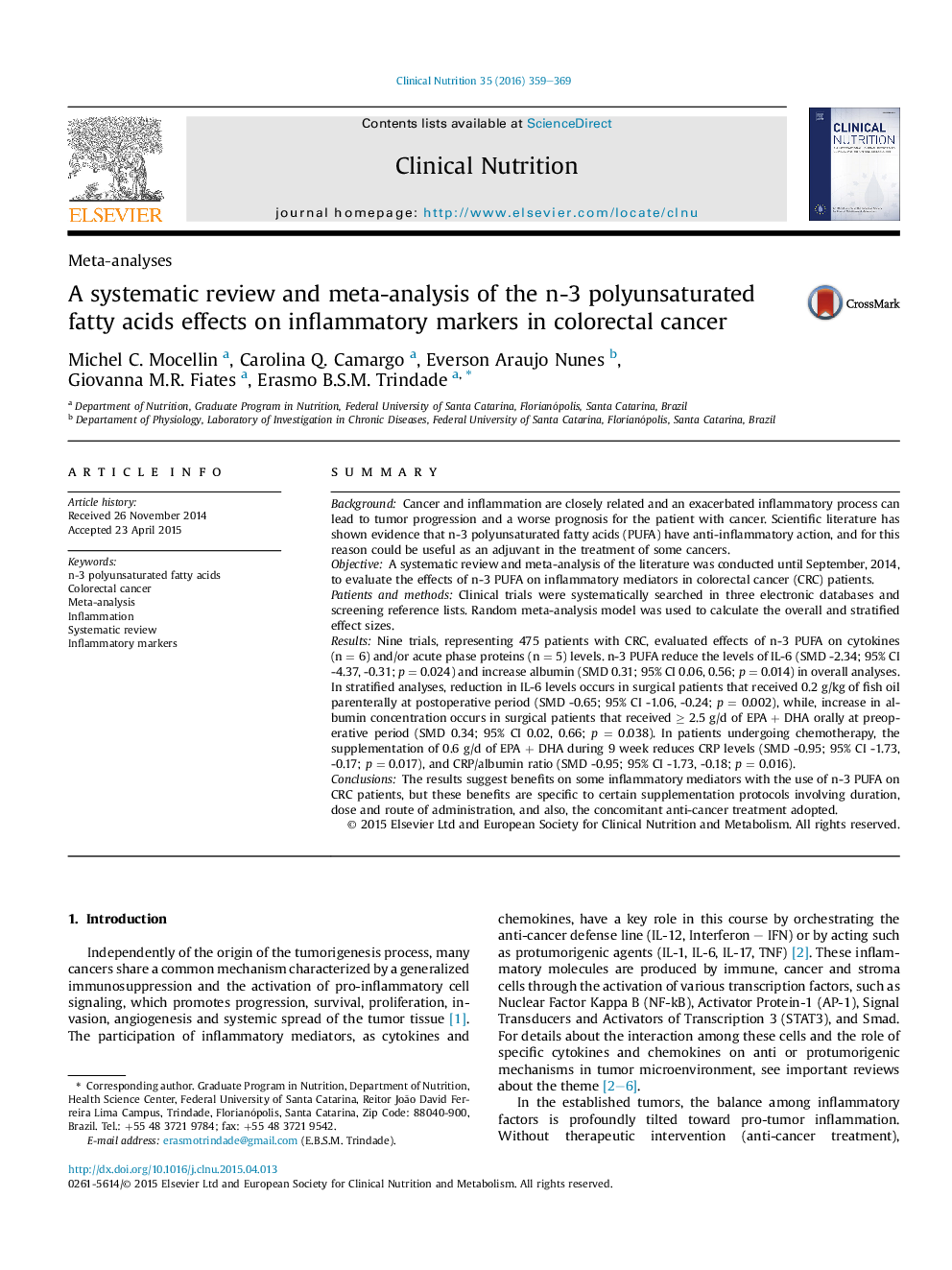| Article ID | Journal | Published Year | Pages | File Type |
|---|---|---|---|---|
| 5872209 | Clinical Nutrition | 2016 | 11 Pages |
SummaryBackgroundCancer and inflammation are closely related and an exacerbated inflammatory process can lead to tumor progression and a worse prognosis for the patient with cancer. Scientific literature has shown evidence that n-3 polyunsaturated fatty acids (PUFA) have anti-inflammatory action, and for this reason could be useful as an adjuvant in the treatment of some cancers.ObjectiveA systematic review and meta-analysis of the literature was conducted until September, 2014, to evaluate the effects of n-3 PUFA on inflammatory mediators in colorectal cancer (CRC) patients.Patients and methodsClinical trials were systematically searched in three electronic databases and screening reference lists. Random meta-analysis model was used to calculate the overall and stratified effect sizes.ResultsNine trials, representing 475 patients with CRC, evaluated effects of n-3 PUFA on cytokines (n = 6) and/or acute phase proteins (n = 5) levels. n-3 PUFA reduce the levels of IL-6 (SMD -2.34; 95% CI -4.37, -0.31; p = 0.024) and increase albumin (SMD 0.31; 95% CI 0.06, 0.56; p = 0.014) in overall analyses. In stratified analyses, reduction in IL-6 levels occurs in surgical patients that received 0.2 g/kg of fish oil parenterally at postoperative period (SMD -0.65; 95% CI -1.06, -0.24; p = 0.002), while, increase in albumin concentration occurs in surgical patients that received â¥Â 2.5 g/d of EPA + DHA orally at preoperative period (SMD 0.34; 95% CI 0.02, 0.66; p = 0.038). In patients undergoing chemotherapy, the supplementation of 0.6 g/d of EPA + DHA during 9 week reduces CRP levels (SMD -0.95; 95% CI -1.73, -0.17; p = 0.017), and CRP/albumin ratio (SMD -0.95; 95% CI -1.73, -0.18; p = 0.016).ConclusionsThe results suggest benefits on some inflammatory mediators with the use of n-3 PUFA on CRC patients, but these benefits are specific to certain supplementation protocols involving duration, dose and route of administration, and also, the concomitant anti-cancer treatment adopted.
